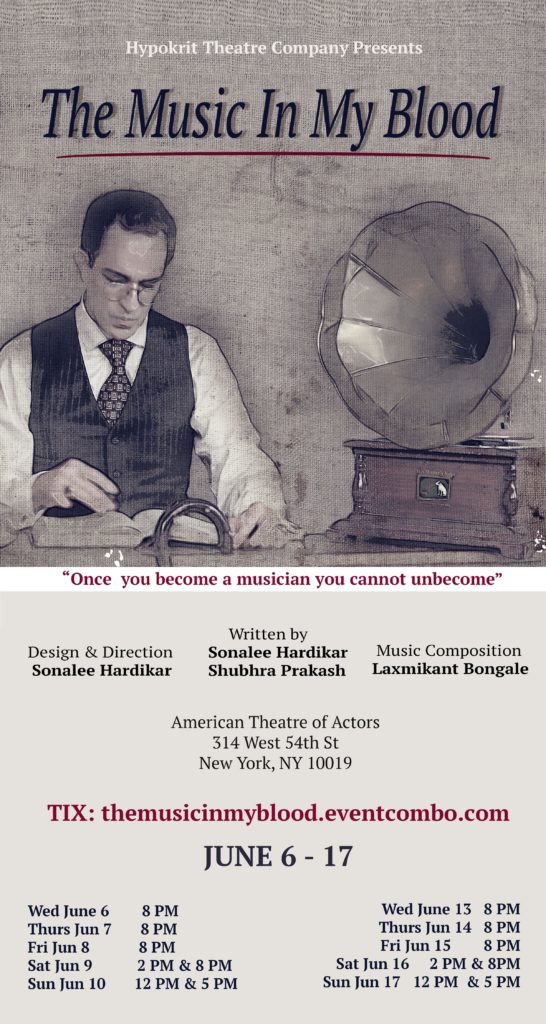1284 people reached on Lassi with Lavina FB page – 55 clicks – 20 Likes
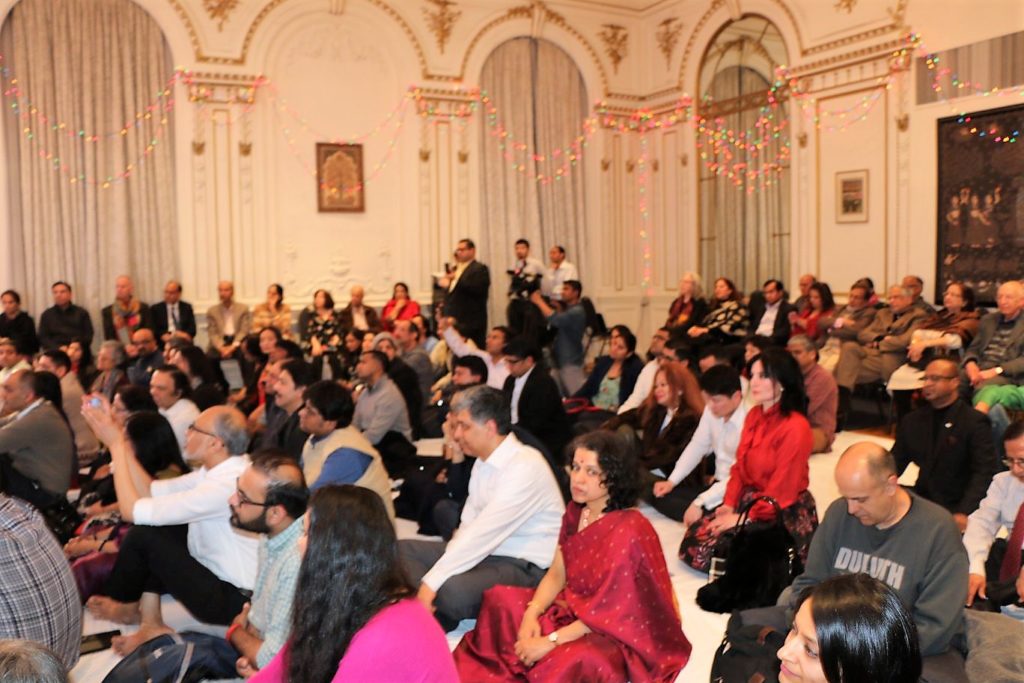
‘Music in My Blood’ flows in a New York Baithak
How Close Encounters with Musicians Can Spark our Creativity
[dropcap]S[/dropcap]ometimes unrelated events can be the source of inspiration and creativity. The musical gathering or Baithak arranged by Sandeep Chakravorty, Consul General of India, at the Indian Consulate in New York provided an opportunity for Indian classical music lovers to gather in an intimate setting for a conversation with the legendary brothers, Pandit Rajan and Sajan Mishra of the Benares Gharana. Over a hundred people thronged the ballroom, listening to this informal and delightful dialogue between two musical greats. They were joined by the Maestro Hidayat Hussain Khan who moderated the conversation and added many insights and memories about the musical life.
For Hidayat, the conversation brought back old times: “It’s like connecting back with my musical family. I have grown up with them and more importantly it’s the musical connection that is fabulous. We are musicians of the modern era but belong to the most traditional families of music and to some degree our souls also connect better to that era of music. The evening was about giving a glimpse into the world of traditional Indian classical music.”
“Music is a language of communication,” he noted. “And in order to have a good communication…we need inspiration.. I believe one – the artist – must listen to to the other..the house. Most cases we have a very good accompanist besides us (Tabla, Harmonium)…who gives us the right nod from time to time to bring out the proper emotions.. A lot of artists have students on stage.. That is not for decoration..but rather to help the artist connect with the audience and put them in the right mood…..And sometimes we have a very good audience with us.”
Khan further added: “But there are a few rare moments when everything comes together….we refer to them as magical moments. Lucky are those – both artists and audience – who get to experience such moments. They are a life-altering musical experience.. blessed are artists such as Rajan Bhai and Sajan bhai who have each other to inspire them. This maybe one of the key reasons why they have so many amazing magical moments on stage..”
The audience drinks from this ocean of music. Here Shubhra Prakash, a playwright, who was part of the audience at the Baithak, describes how this interaction inspired her and sparked her memories of her own musical journey in the creation of her play ‘The Music in My Blood’.
- Lavina Melwani
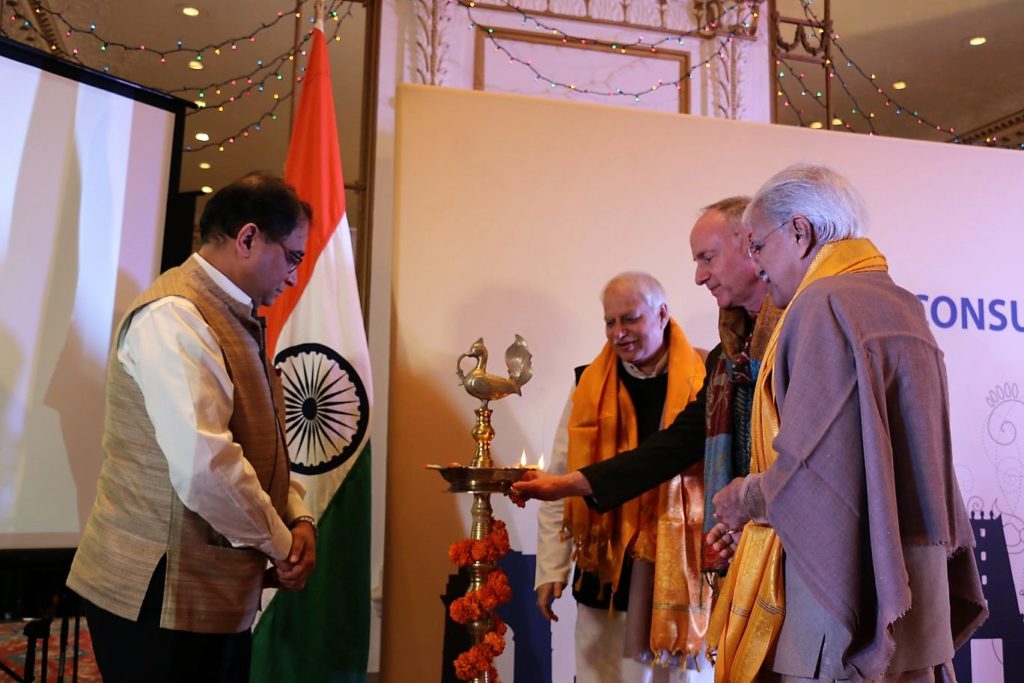
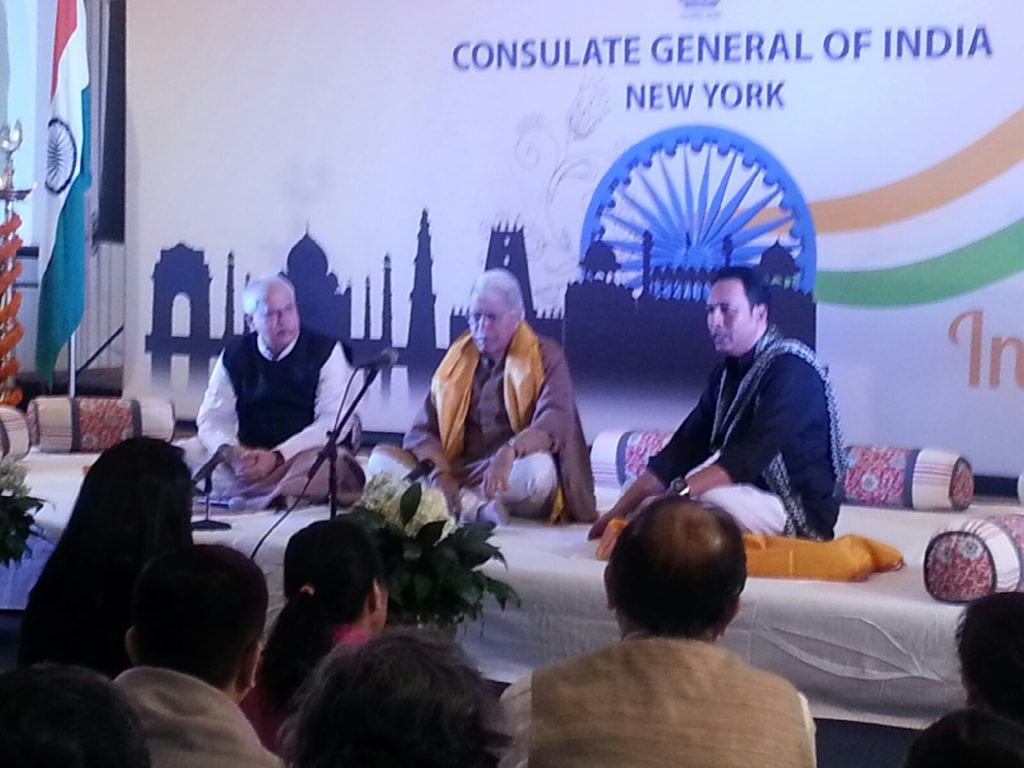
By Shubhra Prakash
[dropcap]I[/dropcap]nstead of a performance setup, we were given the rare opportunity to listen to these artists speak about their relationship with their music. A legacy that their family has carried on for three hundred years now. They were asked questions that ran deep into their process which they have been developing these last fifty years as they have kept up the tradition of Benares gharana. This was an invaluable experience for students, enthusiasts and other professionals who were present.
I too had come here to enrich my understanding and also to spread the word about The Music In My Blood, a play I have co-written about musicians who grow up in the tradition. Where else was I going to find the kind of audience in New York City I knew would admire our efforts in putting together this play?
The evening was to be spent connecting with these music lovers around me so I could tell them about the play; it turned out to be a moving experience that showed me how fortunate I had been to even have the knowledge of my teacher to begin the work on the play.
As the conversation began, I was taken back to December of 2015 when while learning the fundamentals of Indian classical music with Sandip Bhattacharjee, and I had expressed my need to write a play about this music. Many days those winter months, in the very early mornings I would be taking the G train from Brooklyn to the 7 in Queens to the last stop of Main st and then a bus to sit with Sandip Bhattacharjee and Susmita Chakraborty and ask them again and again to tell me what was it like to have music every day while growing up.
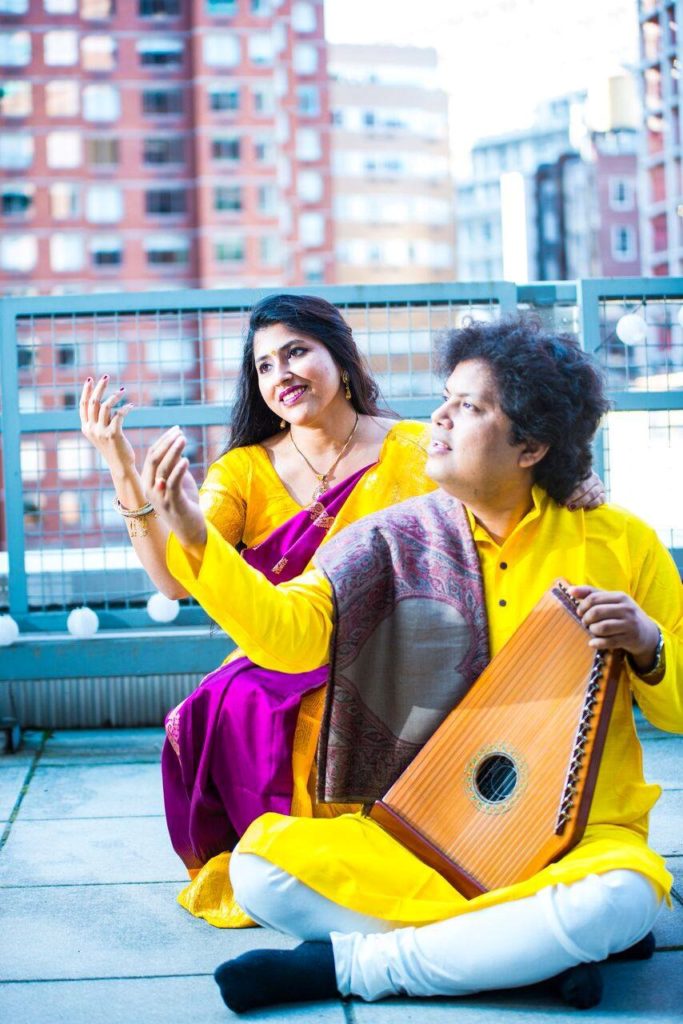
[dropcap]I [/dropcap]did this for weeks, after our conversations and a singing lesson, I would head to work in the city, come back home and write the experiences they shared with me. I would read my notes out to them and begin visualizing the play as Sandip and Susmita patiently listened, contributed, corrected and shared my passion for this work. When not in New York, as they are based in India and only here for the part of the year, they would get on Skype and continue the conversation.
In late 2017 I had a chance to visit Kolkata where they graciously invited me to their home, took me to classical concerts in Kolkata and most invaluable let me listen to them practicing with their colleagues and students.
Now in April 2018, when I listen to Pandit Rajan and Sajan Mishra I find echoes of those conversations. When they speak about the Benaras Gharana maintaining the strictness of dhrupad along with the style of thumri and tappa I am taken back to one late night while practicing, Sandip meticulously explained why dhrupad is difficult to sing. When the brothers spoke of the mood, the feeling of a raag, I remember Sandip describing how he would spend hours in solitude to gather the feeling of a season, of a time of day so he could color the raag correctly in his singing.
When the brothers said “the bhavna is ours, it comes from within us, the one with which we place Sa.” meaning, it is our own feeling brought only by our own experience with the music with which we place Sa, the first note, at that instant I am reminded of one of the scenes of our play where a teacher establishes this very approach.
Similarly, when they demonstrate how Puriya is maintained in a bandish and I think of another scene where two characters discuss why Puriya was not rendered correctly. When during the Baithak, they keep coming back to the “essence of singing” is love, it’s that music is like prayer, I am reminded of a long monologue inspired by Sandip where a character warns that as singers if we are to not sing with the right feeling, our prayers would not be answered.
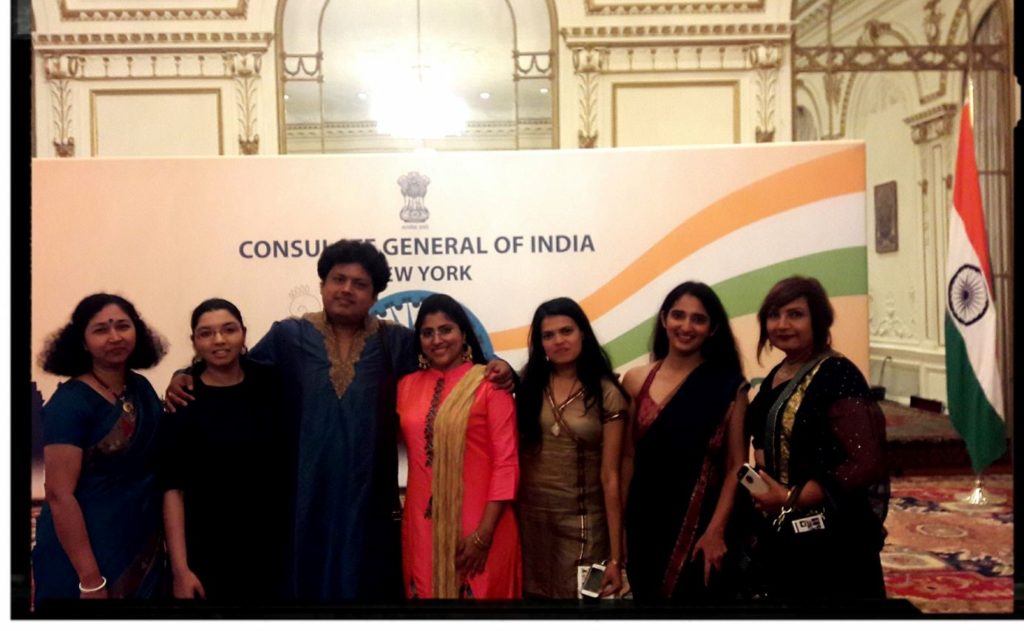
[dropcap]T[/dropcap]here are so many such instances in this Baithak that keep taking me back to the play. How we present this labor of work, about a tradition that is difficult to encapsulate altogether in a play, is influenced by our own bhavna, our own experiences with the music and yet it seems to resonate beyond just music.
The brothers wanted us, the audience, to note that we can no longer listen and watch those whom they have, there are only a few who remain from a generation that was devoted to listening and learning. It is now up to us to sit with them, to learn from them.
I sat there listening to the exponents of this tradition and I kept thinking how fortunate I had been, that I was welcomed by my teacher who shared with me without hesitation the experiences that began the journey of the play that I was writing and which is now a reality.
The Music In My Blood : An English play in two acts.
Synopsis : A story about a music that deeply stirs the emotions of a listener and demands great sacrifice from those who dare to pursue it. The Music In My Blood crosses the boundaries of time and space to bring together Prema and Walter, two people bound and frayed by their love of music.
Fleeing the demands of legacy from being an Indian classical singer , from a musical dynasty in Benares, Prema chooses to pursue a history degree in New York City. She discovers the writing of Walter Kaufmann, a Jewish man who developed a devotion to Indian classical music when he found refuge in India during WWII. He gave India its iconic All India Radio – Akashvani tune that has welcomed the morning for the past seventy years. Kaufman’s words seemingly reaffirm for Prema that once you become a musician you cannot un become. Prema’s flashbacks and her dialogue across time and space with Kaufman is scored by the musical arrangement and renditions of Sandip Bhattacharjee and Susmita Chakraborty.

